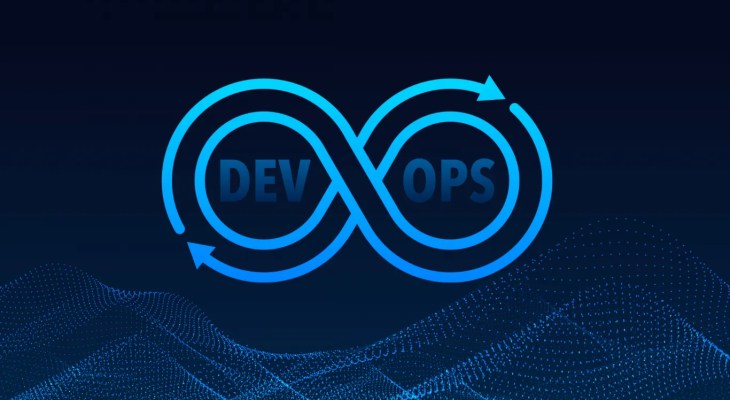DevOps promised faster delivery, tighter feedback loops, and empowered developers. But in many organizations, it has quietly become a source of engineer burnout. Why? Because the dream of “everyone owns DevOps” often becomes “developers own everything.”
Let’s dig into how modern DevOps practices are overwhelming developers—and how bringing in dedicated DevOps engineers can restore balance, efficiency, and developer happiness.
The Problem: When DevOps Turns into DevOps
-
Developers Are Wearing Too Many Hats
DevOps culture encourages shared responsibility—but that doesn’t mean everyone should do everything. Many developers are now expected to:
- Write application code
- Manage infrastructure (IaC)
- Monitor deployments
- Respond to incidents
- Maintain CI/CD pipelines
This “full ownership” approach spreads them thin and leads to constant context switching, a known productivity and mental health killer.
-
On-Call Burnout
Developers frequently rotate into on-call schedules, dealing with late-night pages or infrastructure issues they’re not fully trained to handle. Over time, this erodes motivation and leads to fatigue.
-
Tool Fatigue and Complexity
Kubernetes, Terraform, Helm, GitOps, Prometheus, ArgoCD… the toolchain has exploded. Learning and managing these platforms requires a separate skillset, often piled on top of core development responsibilities.
-
Unclear DevOps Ownership
Without dedicated DevOps engineers, responsibility for reliability, observability, deployment, and security is often vaguely distributed, creating gaps and finger-pointing when something goes wrong.
The Solution: Dedicated DevOps Engineers (SREs, Platform Engineers, etc.)
A dedicated DevOps team doesn’t mean returning to silos—it means enabling sustainable, scalable DevOps. Here’s how:
-
Separation of Concerns, Without Silos
Dedicated DevOps engineers focus on infrastructure, automation, and reliability as a product. They build platforms and pipelines that developers can easily use—without needing to become ops experts themselves.
-
Better On-Call Support and Incident Management
DevOps engineers can take first-line on-call for infrastructure and CI/CD issues, dramatically reducing the pressure on developers and improving incident response quality.
-
Tool Curation and Enablement
Instead of every team building its own fragile scripts, DevOps engineers centralize tooling, create documentation, and ensure consistency across environments.
-
Focus on Developer Experience (DevEx)
Platform teams can streamline the developer workflow with self-service deployments, fast feedback loops, and abstracted infrastructure, boosting productivity and morale.
A Balanced Model: Developer Empowerment + DevOps Expertise
The goal is not to take DevOps “away” from developers—but to support them with dedicated engineers who:
- Automate repetitive tasks
- Maintain and evolve the CI/CD infrastructure
- Improve system reliability and security
- Enable developers to deploy confidently and independently
Conclusion: DevOps Done Right
DevOps burnout isn’t a failure of the methodology—it’s a sign of poor implementation. By embedding DevOps engineers with a clear mandate to support and enable developers, you build a more resilient, scalable, and human-friendly engineering culture.
- Reduce burnout
- Increase velocity
- Improve reliability
- Make developers love DevOps again
Would you like this adapted into a blog post, LinkedIn article, slide deck, or internal memo format?
Here’s a FAQ (Frequently Asked Questions) section to complement the article “Why DevOps is Causing Your Engineers to Burnout—and How Dedicated DevOps Engineers Can Fix It.” You can include this at the end of a blog post, use it in internal docs, or on a company website.
❓ Frequently Asked Questions (FAQs)
Q1: Isn’t DevOps supposed to be a shared responsibility? Why do we need dedicated DevOps engineers?
A: Yes, DevOps is about shared responsibility between dev and ops. But “shared” doesn’t mean “everyone does everything.” Dedicated DevOps engineers specialize in infrastructure, tooling, and automation, enabling developers to move faster without being overwhelmed by operational tasks.
Q2: Won’t hiring dedicated DevOps engineers just recreate the old silos?
A: Not if implemented correctly. The goal is collaboration, not separation. DevOps engineers build and maintain platforms that developers use, while still working closely with them. It’s about improving flow and reducing friction—not gatekeeping.
Q3: Our developers are capable of managing CI/CD and cloud infrastructure—why change?
A: Capability isn’t the issue—capacity is. Just because developers can manage infrastructure doesn’t mean they should. Offloading operational complexity frees them up to focus on building product features and reduces burnout from wearing too many hats.
Q4: What’s the difference between a DevOps engineer and a Site Reliability Engineer (SRE) or Platform Engineer?
A: The lines blur, but generally:
- DevOps Engineer: Builds CI/CD pipelines, configures infrastructure, integrates monitoring/logging tools.
- SRE: Focuses on reliability, observability, and incident response; often works on error budgets and SLAs.
- Platform Engineer: Builds internal developer platforms to abstract infrastructure and enable self-service.
All three roles share the goal of enabling developers and improving system reliability.
Q5: How do dedicated DevOps engineers help prevent burnout?
A: By:
- Reducing on-call load for devs
- Handling complex infra/tooling issues
- Automating repetitive tasks
- Providing fast, stable CI/CD pipelines
- Supporting a better developer experience (DevEx)
This lets developers focus on what they do best—building great software.
Q6: How do we know it’s time to hire or grow our DevOps team?
A: Signs include:
- Developers frequently complain about tooling or infrastructure
- CI/CD pipelines are unreliable or slow
- On-call incidents are draining productivity and morale
- Every team builds their own deployment scripts
- Engineers are frequently context-switching between dev and ops tasks
If any of these sound familiar, it’s time to invest in dedicated DevOps or platform support.





